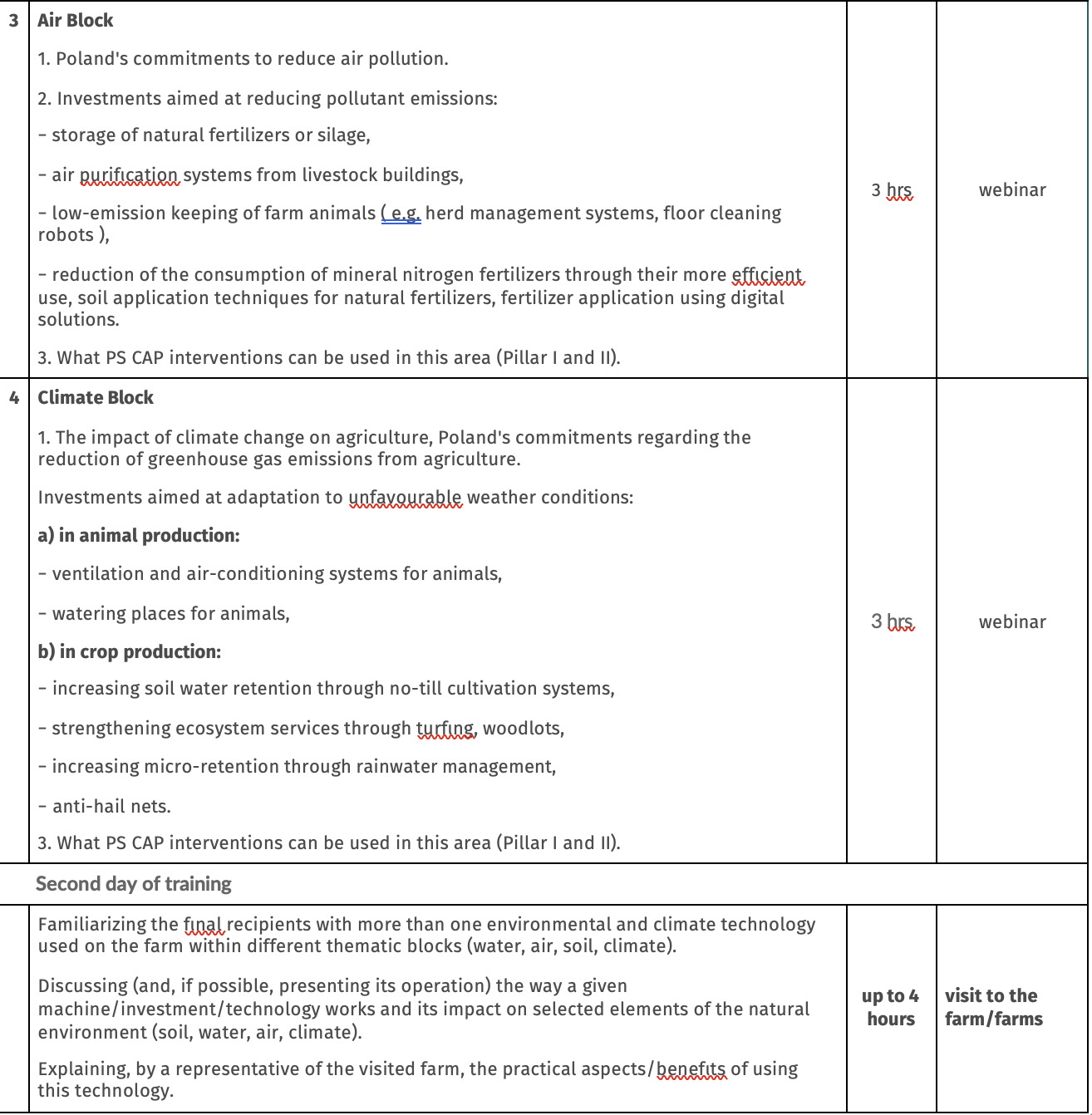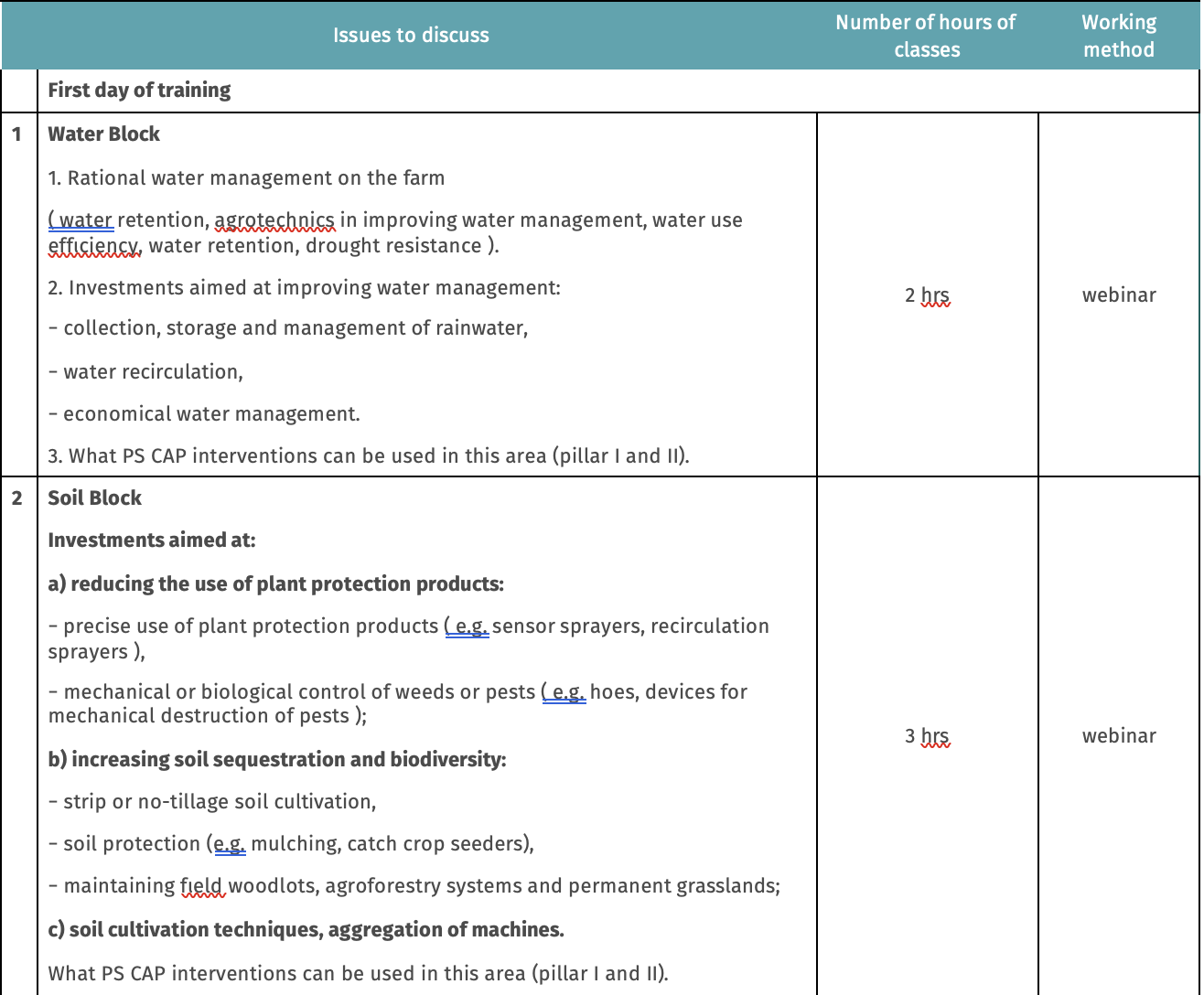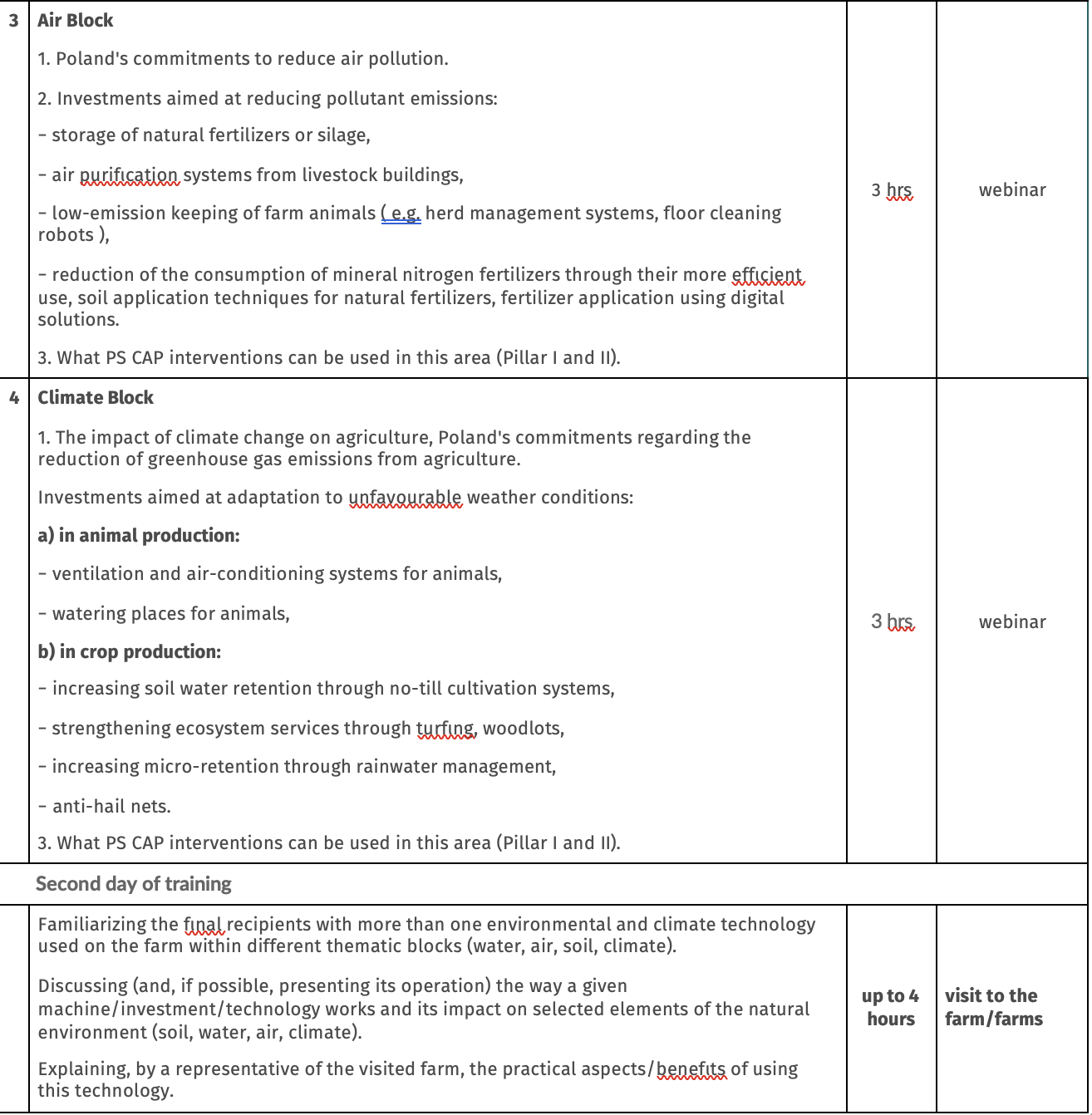2024
training
climate change mitigation

The specific objectives on climate change and environmental care within the Common Agricultural Policy (CAP) are central to addressing the dual challenges of mitigating climate impacts and protecting natural resources in Europe’s agricultural sector. Agriculture is a significant source of greenhouse gas emissions, and at the same time, it faces increasing risks from extreme weather and environmental degradation. To meet these objectives, the CAP promotes sustainable farming practices such as agroecology, carbon farming, and biodiversity conservation.
AKIS interventions play a key role in enabling the shift towards more sustainable agriculture by ensuring that farmers are not only aware of these practices but are also supported in their implementation. In this sense, the AKIS framework can encourage the adoption of practical climate-resilient solutions fostering the collaboration between researchers, advisory services, farmers, and digital innovation hubs and favoring the increased knowledge on practices.
The Polish CAP Strategic Plan identified a weakness in the the limited knowledge and skills among farmers regarding sustainable agricultural practices and climate adaptation. This knowledge gap could hinder the effective implementation of environmental and climate protection intervention. Moreover, adopting green technologies and resource-efficient practices, such as precision farming, renewable energy, and improved water management systems might have a significant impact in the sustainability of farm practices. However, to capitalize on these opportunities, it is essential that farmers are equipped with the necessary skills and knowledge to implement them effectively. Training ensures that investments in environmental and climate protection are not just about acquiring equipment, but about using it efficiently to achieve long-term sustainability, contributing to broader objectives like reducing greenhouse gas emissions, enhancing biodiversity, and supporting the EU Green Deal, ultimately fostering a more resilient and sustainable agricultural sector.
The inclusion of training in the Polish CAP Strategic Plan's intervention I.10.4 - "Investments contributing to environmental and climate protection", aims to helps farms to improve knowledge about technical standards to reduce environmental pressures and adapt to climate change, minimizing its negative effects. Key areas include reducing the use of pesticides and fertilizers, cutting greenhouse gas emissions, enhancing soil carbon sequestration, and promoting biodiversity. The intervention strengthens Poland's implementation of environmental and climate protection schemes under both CAP Pillars I and II. Modern equipment and digital solutions will help farmers implement these measures more effectively, with a focus on climate adaptation, sustainable resource management, and biodiversity conservation.
Under the Polish CAP Strategic Plan has been published a call for applications for the intervention I.10.4 Investments contributing to environmental and climate protection that provides a mandatory training conducted by provincial agricultural advisory centres in the field of "Sustainable management of natural resources such as water, soil, air, climate" before the date of submission of the application for contribution or undertakes to complete it before the date of submission of the application for payment. The beneficiaries are:
The aid is granted for an operation covering investments concerning:
The aid will be granted if the farmer meets, among others, a mandatory training conducted by provincial agricultural advisory centres in the field of "Sustainable management of natural resources such as water, soil, air, climate" before the date of submission of the application for aid or undertakes to complete it before the date of submission of the application for payment.
Box 1 : Provincial Agricultural Advisory Centres
The Provincial Agricultural Advisory Centres (Ośrodki Doradztwa Rolniczego, or ODRs) are regional institutions responsible for providing agricultural advice, education, and support to farmers. They operate under the supervision of the Ministry of Agriculture and Rural Development, offering various services to enhance the productivity, sustainability, and competitiveness of farms across the country. These centers are integral to implementing the Agricultural Knowledge and Innovation System (AKIS), facilitating the transfer of knowledge about innovative technologies, sustainable practices, and environmental protection.
A specific attachment of the call is dedicated to a Declaration of commitment to undergo training conducted by provincial agricultural advisory centers in the field of "Sustainable management of natural resources such as water, soil, air, climate" in the context of implementing intervention I.10.4 PS CAP for 2023-2027.
Box 2 : Conditions of eligibility
The complete list of conditions of eligibility provide the following conditions:
- The owner must be of a farm with an agricultural area of no more than 300 ha.
- Conducts agricultural activity in the field of plant or animal production on the farm and this activity is not conducted exclusively for scientific and research purposes - the above conditions must be met at least from the date of submission of the application for aid.
- Is at least 18 years old on the date of submission of the application for assistance – in the case of a natural person or a partner in a civil partnership who is a natural person.
- Has an identification number in the producer register, assigned in accordance with the provisions on the national system of producer registration, farm register and register of payment applications.
- Has completed training conducted by provincial agricultural advisory centres in the field of "Sustainable management of natural resources such as water, soil, air, climate" in the context of implementing the CAP PS intervention for 2023–2027 "Investments contributing to environmental and climate protection" before the date of submission of the application for aid or undertakes to complete it before the date of submission of the application for payment.
The training is organized by the Agricultural Advisory Centre and it is usually organized after gathering a group of people. The training lasts two days where the first day of training is carried out in the form of a webinar, the second day of training is a trip to a farm (Table 1).
Table 1: Example of a Training program on SUSTAINABLE MANAGEMENT OF NATURAL RESOURCES in the context of implementing the CAP PS Intervention for 2023-2027 "Investments contributing to environmental and climate protection”Framework training program


Source: Pomeranian Agricultural Advisory Centre in Lubań
The implementation of the mandatory training on sustainable management of natural resources should take into account some practical implication: